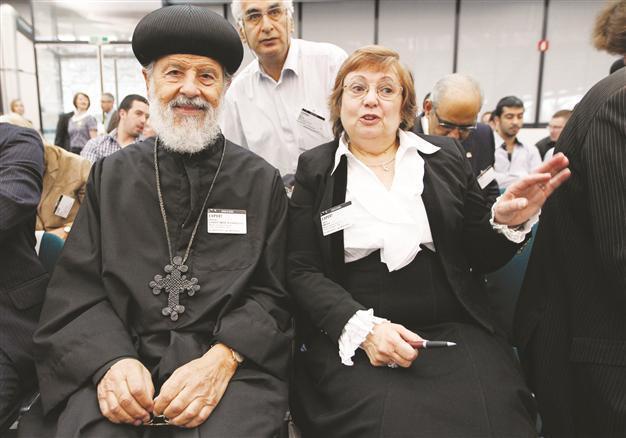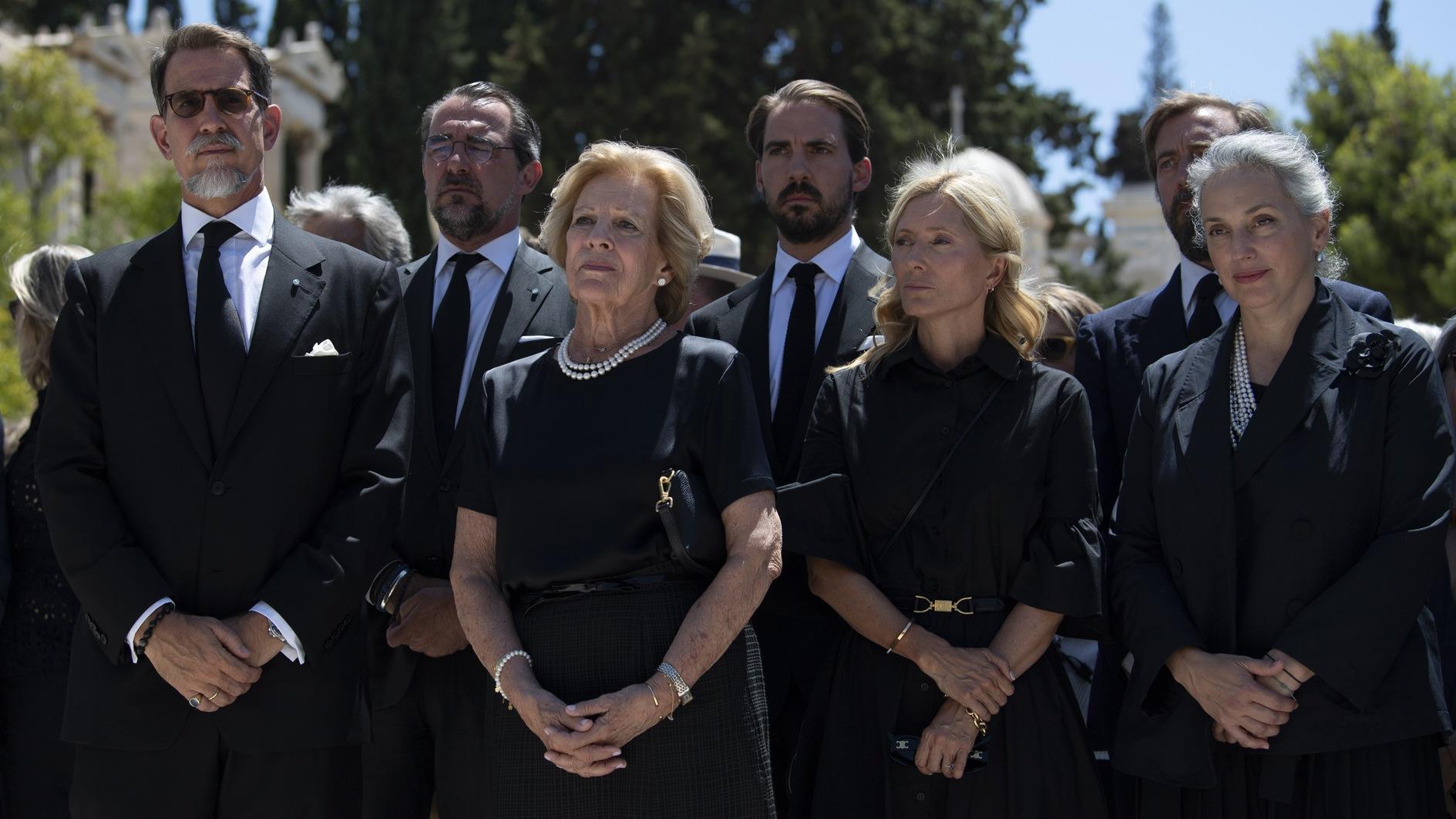Christians take discrimination to European Court in Britain
LONDON / STRASBOURG

Britain’s Eweida (R) sits besides Bishop Athanasios Canepa, as she waits for the beginning of the hearing on her case with three other British nationals in Strasbourg. REUTERS photo
Four British Christians who claim they lost their jobs because of discrimination against their beliefs have taken their cases to the European Court of Human Rights (ECHR) in a landmark case.The four include two women who claim they were asked to remove necklaces with crosses on them at work, a relationship counselor who refused to counsel gay couples and a registrar who would not conduct same-sex civil partnerships.
British Airways worker Nadia Eweida was sent home by her employer in 2006 after refusing to remove a necklace with a cross or hide it from view, according to BBC. An employment tribunal ruled Eweida, whom court documents say is a Coptic Christian originally from Egypt, had not suffered religious discrimination, but the airline changed its uniform policy after the case to allow all religious symbols, including crosses.
Court looks at Article 9
In a similar case, nurse Shirley Chaplin was moved to a desk job by her company for refusing to remove a necklace bearing a cross.
Chaplin, who said she had worn the cross since her confirmation in 1971, told an employment tribunal she had “been a nurse for roughly 30 years and throughout that time I have worn my Crucifix,” the Huffington Post reported.
The ECHR will investigate whether there has been a breach of Article Nine of the European Convention of Human Rights, which covers the right to freedom of religion. The four, whose cases have been publicly backed by Lord Carey, the former Archbishop of Canterbury, argue that the actions of their employers contravened articles nine and 14 of the European Convention on Human Rights, which prohibit religious discrimination and allow “freedom of thought, conscience and religion,” according to the Press Association.
Gary McFarlane, a Bristol counselor for Relate, was sacked after refusing to give sex advice to gay couples. McFarlane, now a self-employed counselor, is a practicing Christian and formerly an elder of a large church. In court documents, McFarlane is said to “hold a deep and genuine belief that the Bible states that homosexual activity is sinful and that he should do nothing which directly endorses such activity.” Registrar Lillian Ladele was disciplined after she refused to conduct same-sex civil partnership ceremonies in north London.
Keith Porteous Wood, executive director of the National Secular Society, which has prepared a submission for the court in Strasbourg, said the case is likely to be a landmark case determining the future direction of equality law in the U.K., and potentially also in Europe.
















